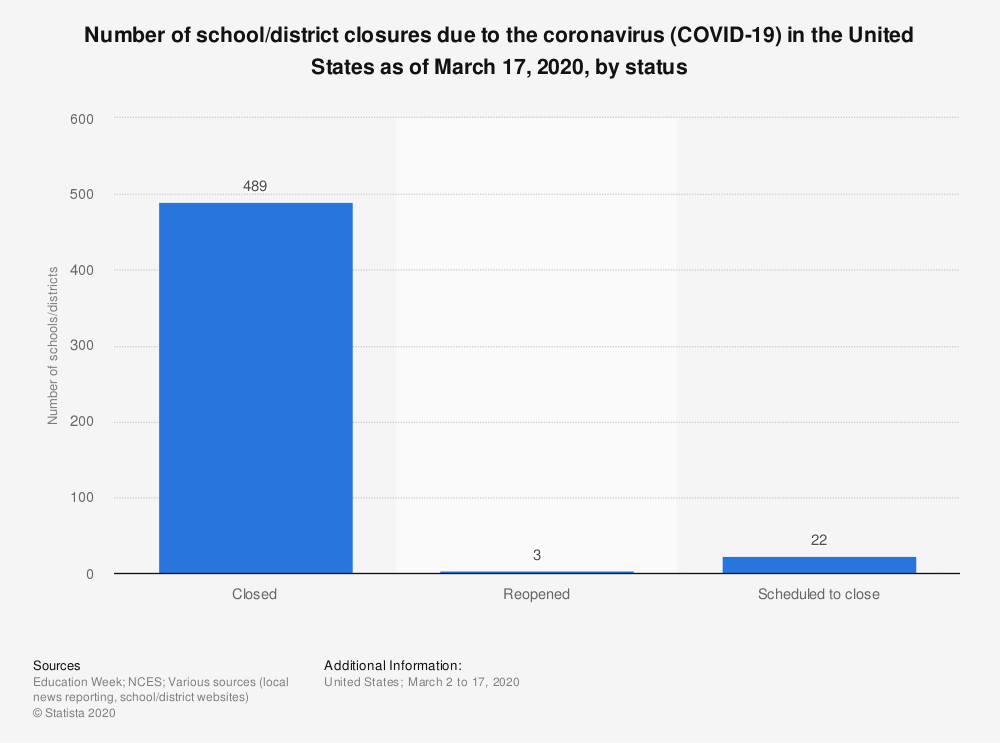Applying to college is no cakewalk.
The coronavirus and subsequent financial crisis further complicate things. High school seniors are seeing college dreams dissolving into their worst nightmares.
Physically visiting schools is a no go.
There are more questions than answers regarding college planning.
Where’s tuition money going to come from if parents lose their jobs?
Will schools still be operating virtually in the fall?
Should I write my college essay about the pandemic?
Financial aid plays a major role in acceptance decisions. Schools send out acceptance letters and aid packages during March and April. May 1st is considered a “decision day.” There’s talk this deadline could be extended by a month or more. Students pay a deposit holding their place for the fall. Now, everything is dependent on a virus, bringing great stress for college admissions employees, parents, and students.
According to Jon Boeckenstedt of Oregon State University:
“Every parent and student is going through a difficult time just managing to deal with the uncertainty. It’s unfair to say, well, we have our deadlines, and come hell or high water, you had better decide by May first.”

The application process for high school juniors isn’t immune to disruption. Virtual schooling is the norm along with implementing pass/fail grades. Students worry this will negatively affect their chances of attending their top choices. A.P. tests will be given online without multiple-choice questions. The A.C.T. was rescheduled from April to June. May’s S.A.T. was cancelled.
Will June’s A.C.T. and S.A.T. tests even happen?
Test optional schools may expand dramatically. This is already happening. Early decision deadlines will most likely be moved.
Students need to adjust to the new reality of applying to college during a pandemic. Here are some guidelines for the new coronavirus admission reality.
Establish a proper mindset. Picking a college is a long-term decision. Understand the pandemic won’t last forever. The 2020 application process will be different than anything ever seen. Colleges will be more flexible than in the past.
Schools use a prior-prior year formula for determining financial aid. Your situation may have dramatically changed from two years ago. Call the school and let them know. More needs-based financial aid may be available. $14 billion was set aside for colleges in the recently passed stimulus program. Learn to be nimble, flexible, and creative.
Build a foundation. Encourage your teen to engage in deep introspection to determine what’s most important. Here are some questions to guide the process:
- Why have you made the academic choices you made in high school?
- Why are you involved in the activities you are?
- Why do you surround yourself with the friends you do?
- Why do you want to go to college?
- Why is earning a degree important for you?
Source: Forbes
Create ground rules for discussing college. Being stuck with your family 24/7 isn’t the most ideal situation for teens. The stress of applying for college makes things worse. It’s important to set parameters to discuss college admission. Picking one day a week or some other set routine to provide boundaries will help in alleviating tension and stress.
Virtually visit schools. Sites like CampusReel, youniversitytv.com, and youvisit.com make it easy to “tour” a campus from quarantine. Many colleges are creating virtual “open house” programs. It’s a great idea to follow a school’s social media posts to gain a better understanding of schools cultures. Carefully read online copies of college newspapers and alumni magazines. I speak from experience. Earlier this year, when we toured some colleges with our 17-year old sons, we discovered some interesting crime statistics from a school newspaper. Of course, this information wasn’t mentioned by our tour guide.
Stay connected to teachers and counselors. Not being physically in school makes this difficult, not impossible. Zoom meetings and phones still operate. Don’t make this decision in a vacuum.
Explore majors. Maybe there was a subject your teen was curious about but wasn’t offered as part of the high school curriculum. Now is the perfect time to enroll in a MOOC course or something similar to further explore this interest. Spending hundreds of thousands of dollars in tuition money shouldn’t be a crapshoot.
Enhance your extracurricular resume. Schools understand many activities are cancelled. This doesn’t give teens a ticket to be unproductive. Taking care of a younger sibling or coordinating clubs and activities in an on-line forum shows initiative and the ability to think outside of the box. Taking on more of a leadership role may pay big dividends later. Encourage your teen to hit the pause button and explore an activity that is interesting to him/her, not just because it was supposed to help with college admissions.
Apply Stoicism to the admission process. We don’t choose when we live, we choose how we live.
You might learn more about yourself during these uncertain times than you ever dreamed possible.
Sources: Virtually Possible: Locking Down The College Search In A Global Pandemic, Forbes; Graduation, Financial Aid, Admissions – For this year’s College-Bound, The Future Is In Turmoil, NPR; Colleges With Empty Campuses Face an Uncertain Financial Future, Bloomberg.





